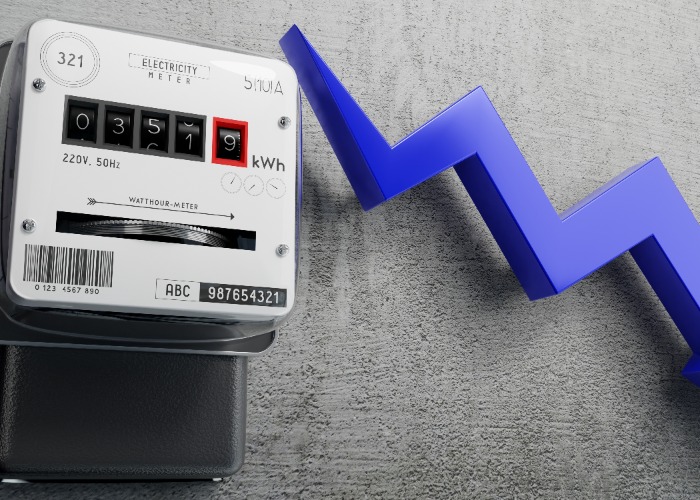Energy price cap to fall: don't cut your payments, do send a meter reading

Energy prices are falling, but we explain why you should think carefully before reducing your monthly payments – and why it's vital you send a meter reading to your supplier soon if you don't have a smart meter.
Households will see their annual energy bills fall by more than £150 when the new energy price cap kicks in this weekend.
The price cap is set by the energy regulator Ofgem and determines the maximum rate a typical household will pay for their energy usage over the course of a year (although your personal bills could be higher if you use more energy than the 'average' family).
As wholesale energy prices fluctuate, the cap is adjusted accordingly every three months.
And because prices are lower than they were at the last check, the energy price cap for Direct Debit customers is set to fall from its current level of £2,074 to £1,923 from 1 October.
That's a drop of more than 7%.
See the table below from Ofgem for all the new price cap rates based on how you pay for your energy.
Given the other pressures our finances are under currently, driven by persistently high levels of inflation, this is obviously good news.
Indeed, when the new cap kicks in, energy bills will be more than 20% lower than they were a year ago when the maximum level was effectively set at £2,500.
As a result, some households will be planning to set their monthly energy direct debit payments far lower.
But doing so could land you in energy debt over the coming high-usage winter months.
Source: Ofgem
Goodbye to the Energy Bill Support Scheme
At first glance, the energy price cap will be almost £580 lower this winter compared to 2022.
But it's worth remembering that our bills were being topped up to the tune of £67 a month back then through the Government's Energy Bill Support Scheme.
These were automatically added to our monthly payments and were worth a total of £400 over the cold months.
Throw in the fact that some analysts believe the annual energy price cap will be revised back above £2,000 in January 2024 and it's clear most households' bills will only be slightly lower between now and March 2024 compared to the same period 12 months ago.
It's vital you keep this in mind when deciding on your monthly payments for the months ahead to avoid falling into energy arrears.
Read: what to do if you're struggling to pay your energy bills
Not on a smart meter? Send a meter reading NOW
One final note on the impending energy price cap reduction.
If you don't have a smart meter, it's a good idea to take a meter reading and send it to your energy supplier in the next couple of days.
That way you can ensure your readings are completely up-to-date when the lower rate kicks in, avoiding the possibility of your supplier overestimating your usage during the higher rate period.
You can generally send your meter readings online, via your supplier's app, by phone or email, so it really couldn't be easier.
|
PROMOTION
|
||
|
Comments
Be the first to comment
Do you want to comment on this article? You need to be signed in for this feature
